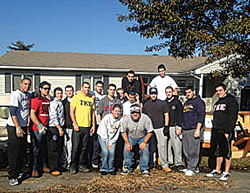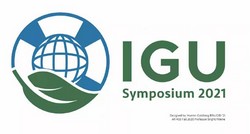The Guggenheim Library was one of 840 libraries and state humanity councils throughout the United States selected to receive the Bridging Cultures Bookshelf: Muslim Journeys. The Muslim Journeys Bookshelf includes a collection of 25 books and three films structured around five major theme areas, introducing the University to a culture outside of their familiar boundaries.
“I first saw the announcement for the ‘Bridging Cultures Bookshelf: Muslim Journeys’ grant in one of the American Library Association’s weekly newsletters,” said Elenora Dubicki, associate librarian.
The collection is built on five major theme areas: American Stories, Connected Histories, Literary Reflections, Pathways of Faith and Points of View.
These themes were designed to engage the power of humanities encourage the understanding of and respect for individuals with diverse heritages and cultures within the United States and abroad, according to the American Library Association (ALA).
ALA also introduced each theme with an essay written by a Muslim Journeys national project scholar and a complementary list of books for further reading and discussion points.
American Stories explains Muslim culture in the United States since colonial times. The stories throughout this collection draw attention to various religious, cultural, ethnic and racial backgrounds and how they’ve shaped community identities.
Linked histories with the Muslim culture are explained through the Connected Histories collection and introduce ways of understanding a shared past between the West and Islam.
The Literary Reflections, on the other hand, introduce stories and religious texts for readers to understand the inspiration that Muslims find in their history and daily lives. It details Muslim ethics, governance, knowledge and identity, along with their cultural and spiritual needs.
Pathways of Faith explain the minimum requirements of learning the Qur’an such as teachings and formal practices. It also identifies Sunni and Shia communities and its pathways for Sufism, or spiritual fulfillment.
The final section of the collection, Points of View, alludes to a cultural heritage that an individual may only be exposed to through the media. This section includes memoirs and novels representing real lives in places such as Cairo, Islamabad, Fez and Tehran. “It intends to provide trustworthy and accessible resources about Muslim beliefs and practices and the cultural heritage associated with Islamic civilizations,” said Dubicki.
The library will also provide access to Oxford Islamic Studies Online, a database of scholarly articles and materials that will further assist students and faculty in research through the grant.
“I think that it [the collection] opens up a lot of cultural awareness that we usually only see through a television screen,” said Rezwan Ahmed, sophomore political science major.
The University currently offers several courses in western civilization, religion and art, where books in this collection could intersect with coursework. “Several faculty have already contacted me regarding the collection and potentially incorporating readings from the books into their course requirements,” said Dubicki.
Dubicki also discussed the aims of the collection and its ability to stimulate a more accurate and informed understanding of the Islamic culture. The collection was recommended, reviewed and selected by distinguished scholars in the anthropology, history, religious studies, interfaith dialogue, art history, architecture and world literature, along with Middle Eastern studies, Southeast Asian studies and Islamic studies.
“Over the past 10 years, Monmouth University has made a concerted effort to build on the diversity of our student and faculty population and I felt that the collection would be a superb addition to the library’s collections to raise cultural awareness within the Monmouth University community,” said Dubicki.
All of the materials are currently available and can be located through the library’s online catalog. A research guide listing the individual materials will be available at guides.monmouth.edu/muslim.


